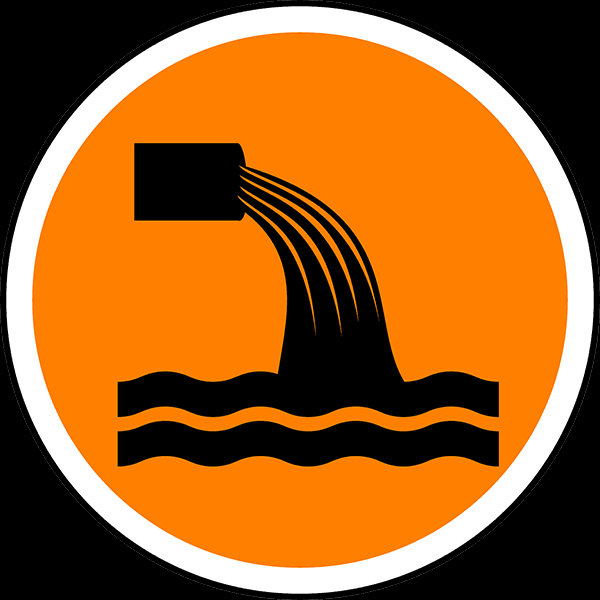Getting My Reclaim Waste To Work
Getting My Reclaim Waste To Work
Blog Article
See This Report about Reclaim Waste
Table of ContentsThe 8-Minute Rule for Reclaim WasteThe Reclaim Waste StatementsAll about Reclaim Waste7 Easy Facts About Reclaim Waste ExplainedReclaim Waste Fundamentals Explained
Explore the kinds, incidents, and types of fluid waste. Domestic sewer waste refers to the waste and products from a property septic container. This kind of waste is developed by human beings in homes, schools, and various other structures. This only consists of sewage-disposal tanks that have a drain area. The correct management and disposal of residential sewer waste need liquid waste to be transferred to a sewage treatment plant where the correct approaches and equipment are applied to cleanse and deal with waste.
Industrial waste usually consists of potential dangers, such as flammable materials or a mix of fluid and solid waste products, and calls for a more innovative and comprehensive disposal process. The disposal of business waste usually entails the filtering of waste prior to transportation to ensure risk-free and proper disposal. Hazardous waste is produced from byproducts and runoff of commercial procedures and manufacturing.
This type of waste can not utilize the same sewer administration transportation or procedures as septic or commercial fluids. The commercial waste management procedure needs the examination and screening of fluid waste before it goes through the disposal process (liquid waste disposal). Overflow waste is the liquid waste that comes from overflow and excess stormwater in extremely populated locations or cities
Drainage waste can create contamination and flooding if not handled correctly. Discover more concerning drain cleansing and waste monitoring. Ensuring correct waste administration can avoid catastrophes and decrease ecological damage. Both people in domestic settings and professionals in industrial or production industries can benefit from recognizing the processes and guidelines of fluid waste administration.
The 5-Minute Rule for Reclaim Waste
Call PROS Services today to discover our waste management and disposal services and the proper methods to care for the liquid waste you produce.
(https://www.mixcloud.com/reclaimwaste1/)Do you know what occurs to your water when you disengage, purge the bathroom or drain pipes the washing maker? No? Well, it's worth understanding. This so-called 'wastewater' is not just an important resource yet, after therapy, will certainly be released to our land, waterways or the sea. Made use of water from toilets, showers, baths, kitchen sinks, laundries and industrial procedures is understood as wastewater.

water utilized to cool down machinery or clean plant and equipment). Stormwater, a type of wastewater, is runoff that moves from agricultural and urban locations such as roof coverings, parks, yards, roads, paths and gutters into stormwater drains, after rainfall. Stormwater streams without treatment straight to neighborhood creeks or rivers, at some point getting to the ocean.
Fascination About Reclaim Waste
In Queensland, most wastewater is treated at sewer therapy plants. Wastewater is transferred from domestic or industrial sites with a system of sewers and pump stations, recognized as sewage reticulation, to a sewer treatment plant. City governments build, maintain and run most sewer therapy plants. Operators are certified under the Environmental Protection Act 1994 to release treated wastewater at an appropriate ecological standard right into waterways.
The Division of Natural Resources recommends city governments about managing, operating and keeping sewerage systems and therapy plants. In unsewered areas, city governments might need owners to set up specific or family sewer treatment systems to Get More Information treat residential wastewater from bathrooms, kitchens, bathrooms and washings. The Division of Natural Resources authorises using home systems when they are proven to be reliable.
In some new class, treatment of some stormwater to get rid of trash, sand and gravel has started using gross pollutant traps. Wastewater therapy takes place in 4 phases: Gets rid of solid issue.
Wastewater then flows right into large containers where solids settle and are removed as sludge. Grease and residue are skimmed from the surface area. Utilizes tiny living organisms called micro-organisms to damage down and get rid of remaining liquified wastes and great fragments. Micro-organisms and wastes are integrated in the sludge. Gets rid of nitrogen and phosphorus nutrients that can trigger algal blossoms in our waterways and endanger water life.
Some Ideas on Reclaim Waste You Need To Know
Nutrient removal is not offered at all sewage therapy plants since it calls for pricey specialized tools. Clear fluid effluent created after treatment might still consist of disease-causing micro-organisms - liquid waste removal melbourne.

Many wastewater flows right into the sewerage system. Under the Act, local federal governments administer approvals and licences for environmentally appropriate activities (Ages) involving wastewater launches that could have a local influence.
8 Easy Facts About Reclaim Waste Described
Otherwise, examples are taken for research laboratory analysis. Commonly several examinations are required to establish the levels of each of the different pollutants such as oils, hefty metals and pesticides in water. Tracking supplies accurate details regarding water top quality and can confirm that licence problems are being met. The details gotten with tracking offers the basis for making water quality choices.
Report this page